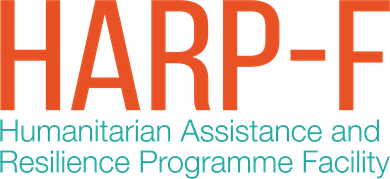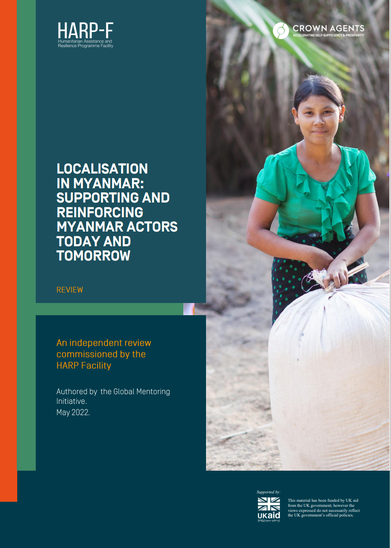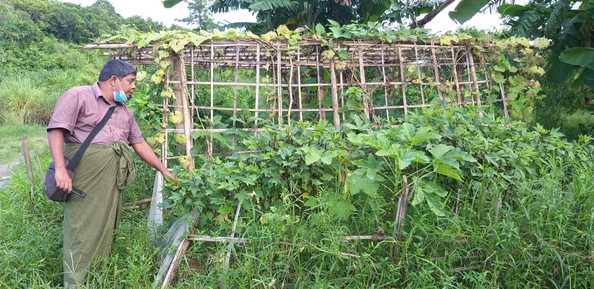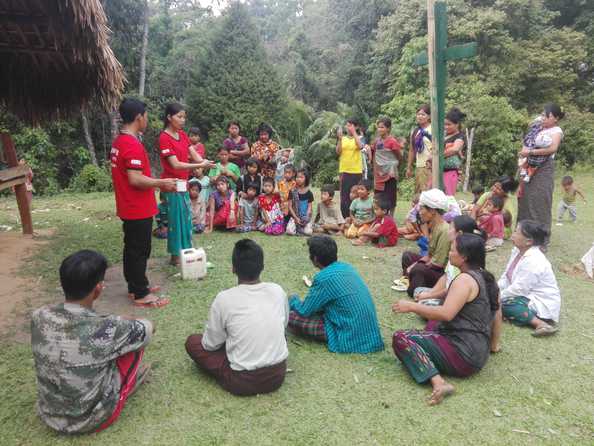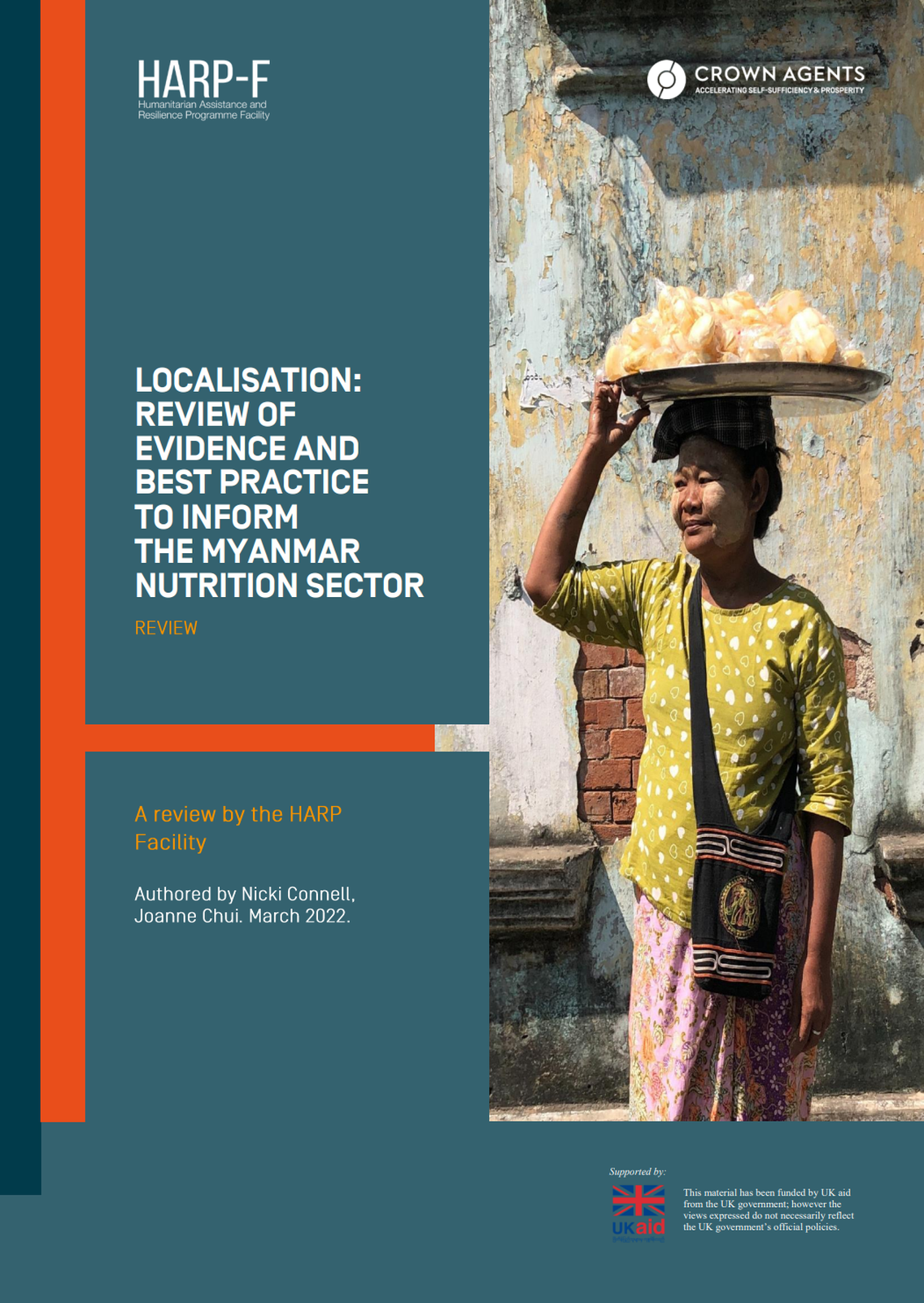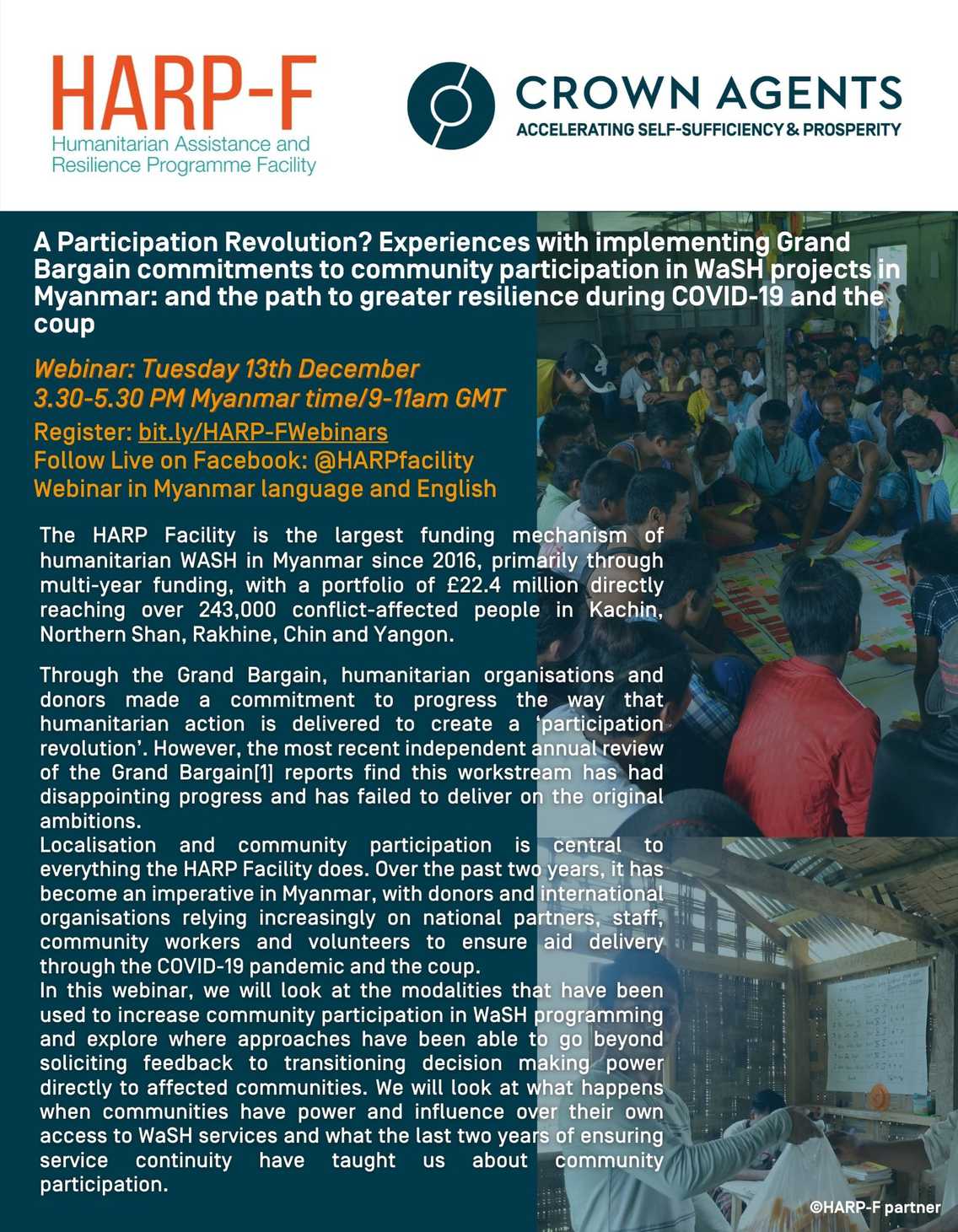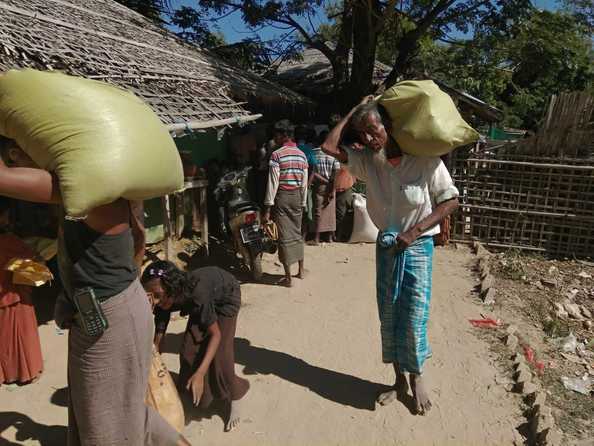Our partners have been spearheading a locally-led humanitarian response in Myanmar’s protracted crisis through armed conflict, the COVID-19 pandemic and a military coup. In October, we held a series of consultations to hear directly from them what support, processes, and tools they require to sustain high quality, locally-led humanitarian action once HARP-F grants close.
Their message is clear: national organisations will require not only increased direct access to donors and to quality funding, but a shift in the power structure of localisation.
They expressed a clear ambition to lead the response, at all stages – not just as programme implementers, but from the decision-making point. And they have demonstrated that they are well placed to do so provided donors, intermediaries and INGOs create an enabling environment, and build an effective support structure. From multi-year, predictable funding, support for stronger systems, ongoing capacity enhancement, MEAL systems suited to Myanmar’s context, and stronger representation in humanitarian coordination mechanisms, they pinpointed the changes that are needed to directly empower local CSOs to lead humanitarian action.
See their recommendations on funding, leadership, risk sharing and capacity building.
